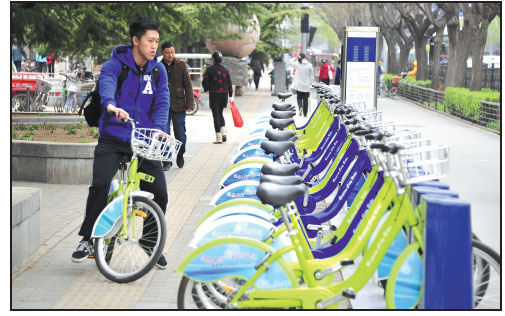
According to the Beijing Municipal Bureau of Statistics, the livability index is based on a comprehensive review of the city, covering aspects such as safety, living standards, the environment, social harmony and innovation.
Zhao Guilin, head of the bureau's monitoring and assessment office, said they had referred to other well-known rankings such as that devised by the Economist Intelligence Unit when deciding the evaluation criteria.
However, the report does not take living costs into account.
According to an EIU report released last month, Beijing is the third-most expensive city on the Chinese mainland, and 31st in the world.
Shanghai, China's No 1, is ranked 11th in the world, followed by Shenzhen, the world's 16th.
Another EIU report issued in August named Melbourne in Australia as the world's most livable city, followed by Vienna and Vancouver in Canada.
Hong Kong was ranked 46th while Beijing was ranked 69th, the highest among cities in the Chinese mainland that were surveyed.
Shanghai was not included the list.
Improving living standards
Measures to improve citizens' living standards as outlined in the 13th Five-Year Plan (2016-20) include:
1. Air quality: Reduce annual average PM2.5 levels in Beijing by 25 percent from the average level last year. Particle pollution should drop to 64 by 2020.
2. Water supply: Clean up 27 rivers with malodorous and contaminated water and raise the city's sewage treatment rate to more than 95 percent. By 2020, water consumption is expected to reach 4.3 billion cubic meters with the recycled water supply reaching 1.2 billion cubic meters.
3. Green transportation: Increase the length of subway lines to about 1,000 km by 2020 from the current 554 km. Subway stations should be located within a 750-meter walk for 90 percent of citizens in the downtown area. An additional 10,000 bicycles for rent will also be rolled out.
4. Forest coverage: Increase the city's forest coverage to 40 percent by planting 280,000 hectares by 2020. More than 20 parks and 11,000 hectares of wetlands will be constructed along the outskirts of the city to provide leisure space for citizens and improve the air quality.
5. Elderly care: Increase the number of beds for seniors in Beijing's community-based nursing homes to 150,000 by 2020. More than 3.21 million people in the city are 60 and older, a number that increases by 500 every day. By 2020, it is estimated that the capital will have around 4 million people aged 60 and older, according to the Beijing Bureau of Civil Affairs. That means, by 2020, the city will be able to provide 40 beds for every 1,000 people aged 60 and older.


















































